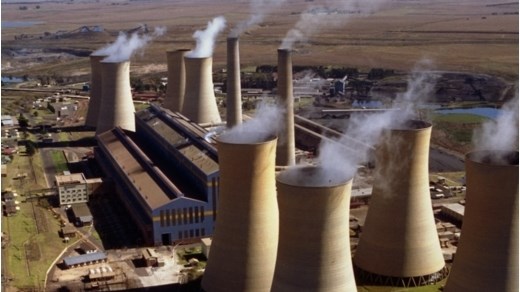Agriculture
Food security at risk due to South Africa's energy crises─── ELSABÉ RICHARD 05:00 Mon, 30 Jan 2023

Load-shedding’s effects on the agricultural sector might manifest in the volumes of products to be harvested or produced in the coming months.
This is according to the chief economist at the Agricultural Business Chamber of South Africa (Agbiz), Wandile Sihlobo, who adds that due to the time lag in agricultural production stages, the after-effects might not be visible immediately.
“The other emerging concern is the impact on jobs if businesses are severely affected. There is a real danger that some farmers could lose their crops, which would impact the farms' financial future and likely negatively impact agricultural financiers.
ALSO READ: Eskom's messages about end of load-shedding 'cause confusion'
“Total exemption of the sector from load-shedding will be near impossible. Many food processing companies and farms are technically linked to other localities and cannot be easily insulated from load-shedding.
“With Eskom's challenges likely to be with us for some time, reducing reliance on Eskom will probably be a strategic business survival consideration for many businesses, although costly. Investing in alternative power sources will need to be prioritised where financial resources permit.”
LEES OOK: Kommer dat hoenders nie geslag kan word indien fase 6 voortduur
Sihlobo explains that alternative electricity generation may not necessarily take a business entirely off the grid, but will ensure the continuity of crucial business activities during the cycle of power cuts.
“The financial commitments associated with this may be quite large, and businesses may also encounter regulatory hurdles. These financial or regulatory limitations should be shared with the Department of Agriculture, Land Reform and Rural Development (DALRRD) so that they can help address them within their available resources and means.
LEES OOK: Voedselprysstygings op die kaarte weens kragonderbrekings
“One possible step DALLRD can consider to streamline the application processes under the Subdivision of Agricultural Land Act (SALA) and Spatial Planning and Land Use Management Act (SPLUMA) to authorise land use for energy generation.
“Additionally, if the government could also consider subsidies for solar panels and battery storage on top of relaxing these requirements, many farmers could possibly go off-grid and generate enough power for their systems,” says Sihlobo.
LEES OOK: Groep van tien dreig met regstappe teen beurtkrag
He further adds that about 20% of maize, 15% of soybean, 34% of sugarcane and nearly half of the wheat production are grown under irrigation. Produce such as fruits and vegetables are also heavily reliant on irrigation, which means that they face related challenges.
“In red meat, poultry, piggery, wool and dairy production, there are also concerns that load-shedding beyond stage two makes operations and planning challenging, as these industries all require continuous power for their usual activities.
LEES OOK: ‘Nersa se tariefverhoging baie slegte nuus vir landbou’
“Similarly, agribusinesses face similar challenges in various downstream processing activities, such as milling, bakeries, abattoirs, wine processing, packaging, and animal vaccine production.
“Exporting agribusinesses, especially those with products susceptible to delays, such as fruits, red meat, and wine, are also worried about the port activities, which fortunately haven't been primarily affected.”














